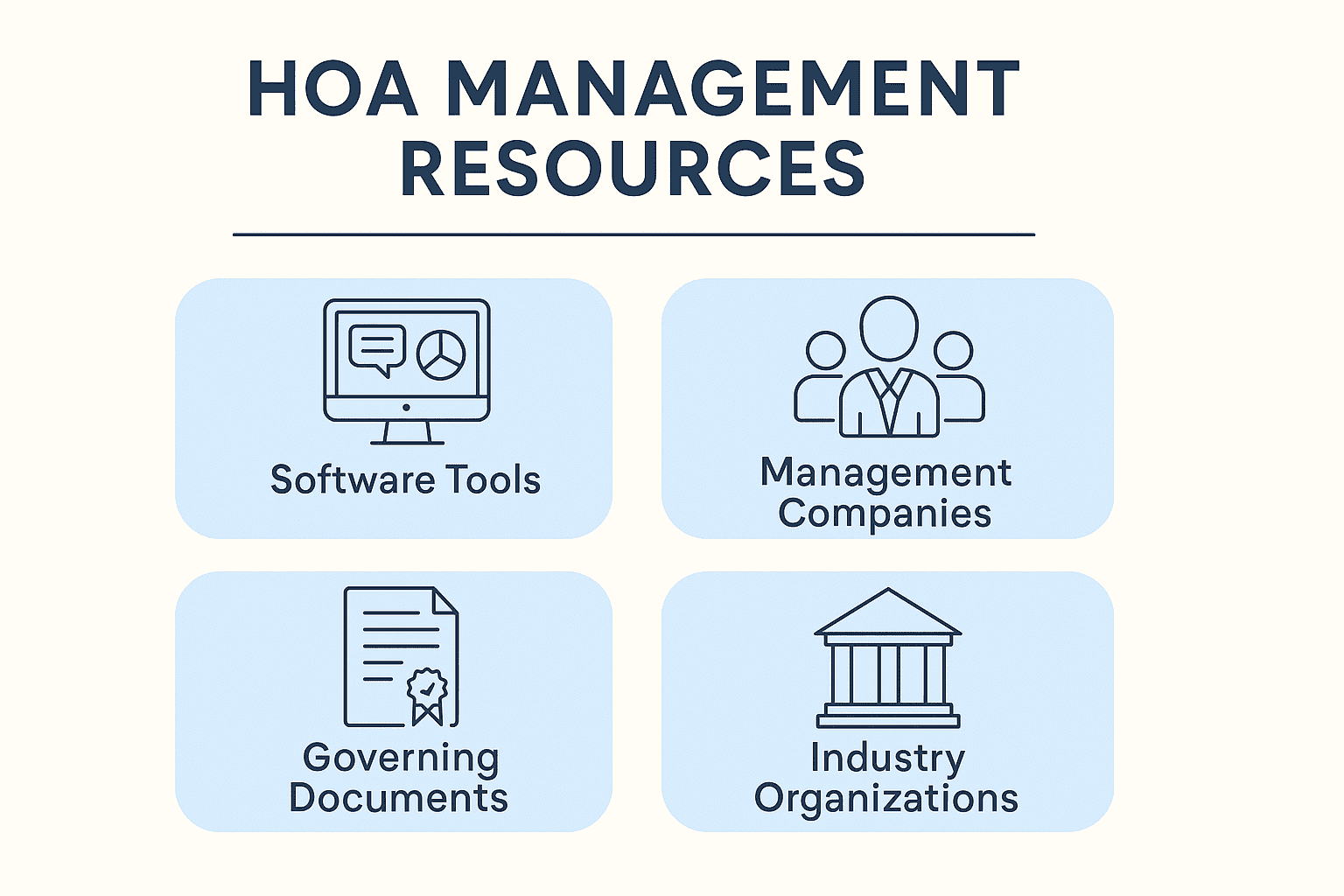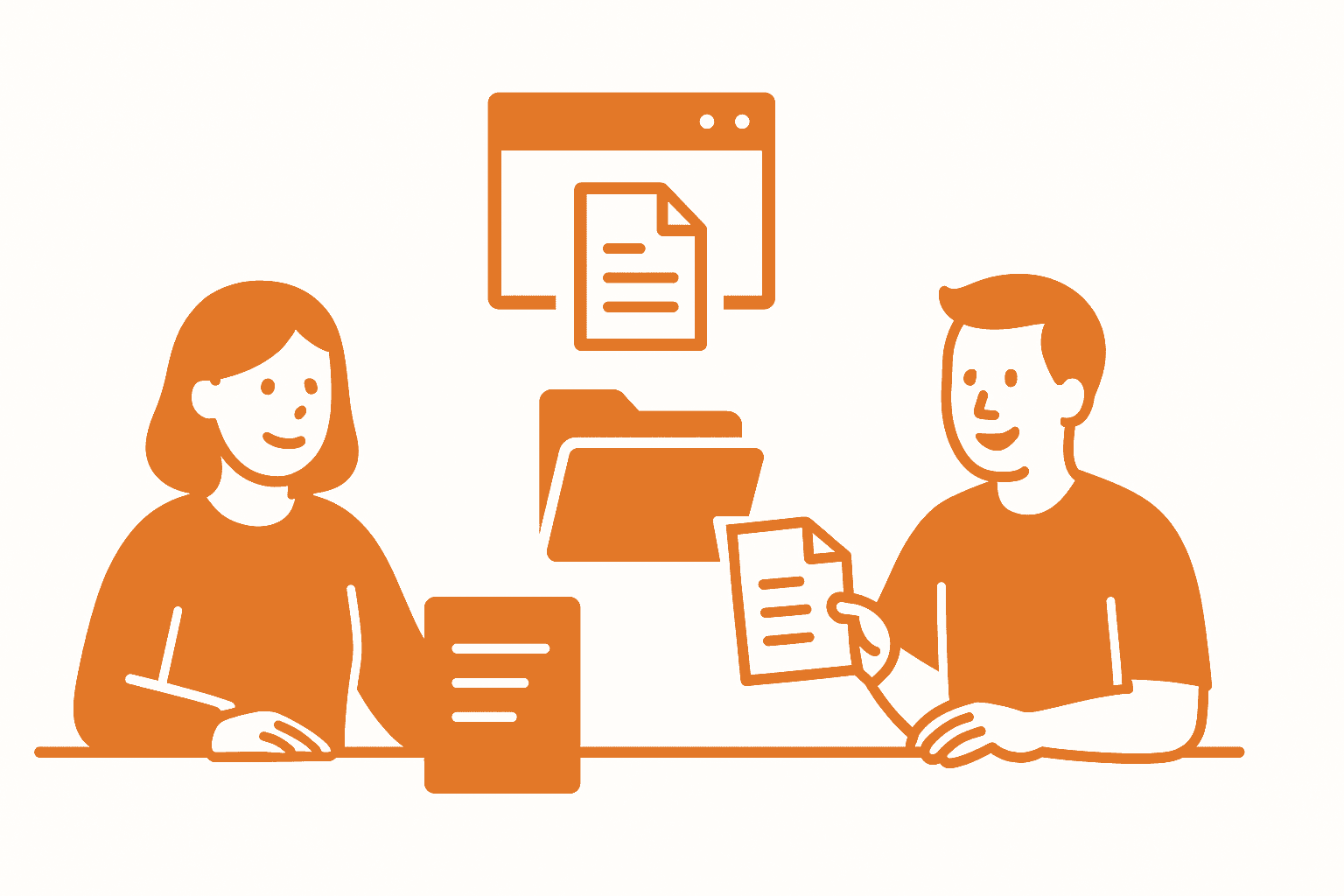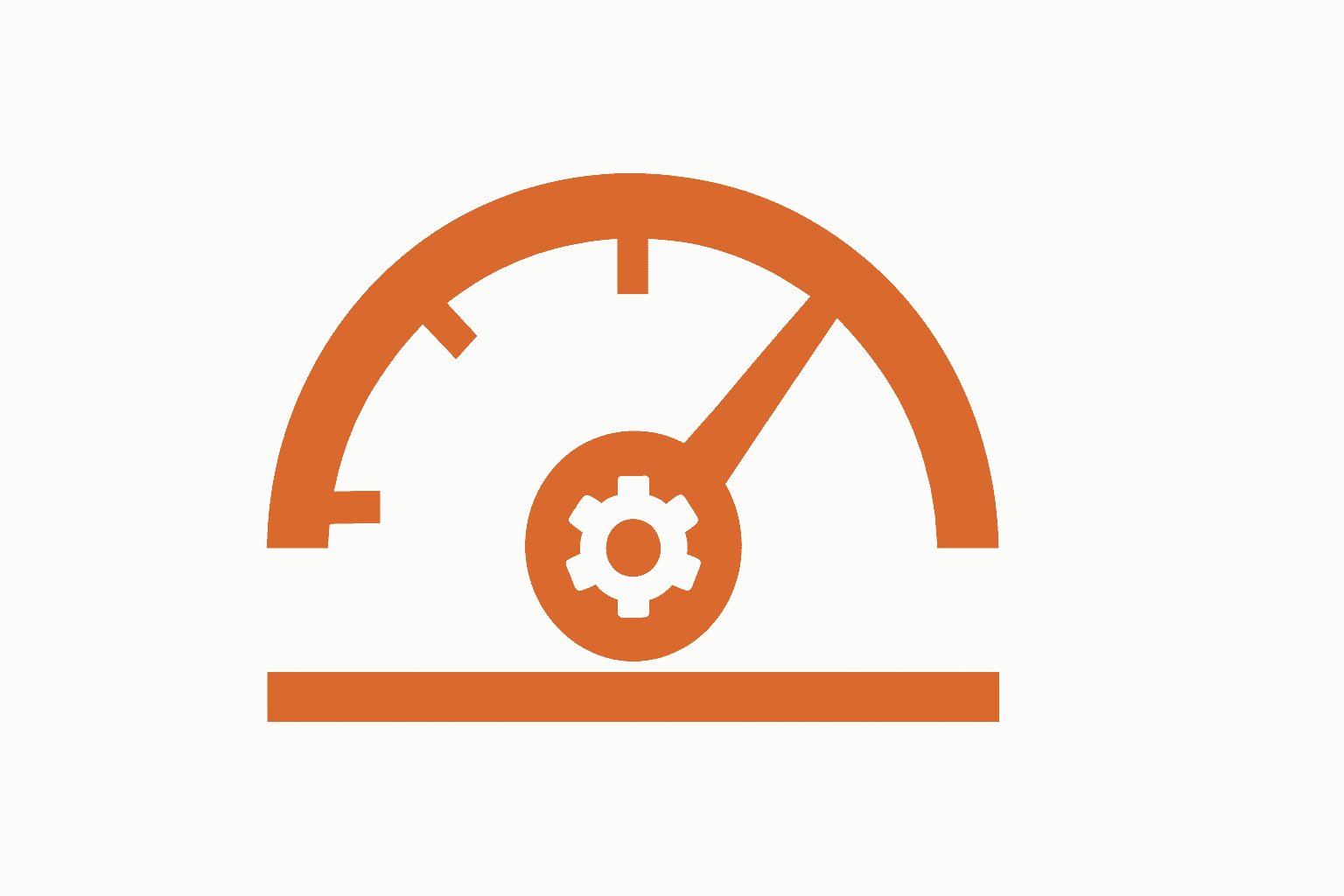HOA management resources: A complete guide for your HOA
HOA management resources are the tools and services that make running an association easier. From software and managers to communication channels and legal guides, this article explains what they are, why they matter, and how your board can use them to create a stronger and more organized community.

Running a homeowners association is not a small task. Board members are mostly volunteers, but they carry big responsibilities. They need to balance rules, budgets, maintenance, and communication. Luckily, there are many HOA management resources that can make the job easier.
This guide breaks down what those resources are, why they matter, and how to use them in your own community.
What are HOA management resources?
HOA management resources are the tools, services, and organizations that help boards and residents run their community. They can be software platforms, management companies, professional associations, or even the governing documents of your HOA.
The goal is simple: simplify tasks, improve communication, and make sure the community follows the rules and laws that apply.
Why HOA boards need resources
Being on the board means taking care of a community’s finances, rules, and property. That is a lot to handle. Resources matter because they save time, reduce conflict, and create trust among residents. They also help the board stay compliant with state and local laws while making communication smoother and more transparent.
Without the right resources, boards often end up overwhelmed, and residents may feel left in the dark. With the right tools, the workload becomes more manageable, and the association is better prepared to handle both daily operations and long-term planning.
Types of HOA management resources
1. HOA managers and management companies
A professional HOA manager is often the first big resource. Managers help with day-to-day work like collecting dues, coordinating maintenance, and keeping records. They cannot make decisions (only the board can) but they provide structure and expertise. For small HOAs, this might mean part-time help. Larger ones may rely on a full management company. Read the full list of considerations right here.
2. Software and online tools
HOA software has become one of the most effective resources. It often includes:
- Online payment and dues collection
- Digital document storage
- Work order and maintenance tracking
- Communication portals and newsletters
- Event calendars and amenity bookings
These tools reduce mistakes, save time, and make it easier to keep everything in one place.
3. Communication channels
Clear communication avoids many HOA disputes. Common resources include:
- HOA websites
- Email newsletters
- Printed bulletins or message boards
- Social media groups for residents (or resident portal).
The important part is not which channel you choose but that residents feel informed and have a clear way to engage with the board.
4. Governing documents
Your governing documents are among the most important resources, even if they do not feel as modern as software. These include:
- Articles of incorporation
- Covenants, Conditions & Restrictions (CC&Rs)
- Bylaws
- Rules and regulations
Together, they provide the framework for how the HOA operates. Many conflicts can be solved simply by referring to these documents.
5. Industry organizations
The Community Associations Institute (CAI) is one of the leading organizations offering education, training, and events for HOAs. Other local associations provide similar support. These groups help boards stay up to date on best practices and legal changes, and they connect board members with peers who face similar challenges.
6. Legal and compliance guides
HOAs operate under state and local laws. For example, in California, the Davis-Stirling Act sets out many of the rules for how associations must run. Online guides like Davis-Stirling.com explain these laws in plain language. Similar resources exist in other states, and legal advisors can also play a key role in helping boards stay compliant.
7. Vendors and contractors
Landscapers, repair services, and security firms are also part of your resource pool. Having a trusted list of vendors ensures consistency and quality. Boards that carefully choose and regularly review vendors reduce risks and ensure better value for the community.
How to use HOA management resources
It is not enough to just know these resources exist. Boards need to put them into practice. That begins with mapping out which tasks take the most time and stress. Once you identify the pain points, you can match them with the right resource. Whether that is software, a professional manager, or simply a better use of your governing documents.
Training is just as important. Board members need to know how to use the tools and how to explain them to residents. A website or portal is only useful if people know it exists and actually use it. Boards should also revisit their resource choices every year, since both community needs and laws can change.
Common challenges in HOA management
Even with resources in place, boards often face similar problems:
- Navigating complex laws and regulations
- Balancing homeowner expectations
- Dealing with internal board politics
- Collecting dues on time
- Handling maintenance backlogs
Resources help with all of these challenges, but they only work if the board sets fair rules, enforces them consistently, and remains open with residents about decisions and budgets.
Practical examples of helpful resources
Many boards find value in setting up online payment systems to make dues easier to track. Others rely on digital document storage to give residents instant access to CC&Rs and meeting minutes. Some use survey tools to gather resident feedback before making big decisions. Security systems and access controls are also common, especially in larger communities with shared facilities.
Not every HOA needs all of these. A smaller association may only need a simple portal and a part-time manager. Larger associations often rely on a full set of tools, contractors, and industry connections to run effectively.
Tips for choosing the right resources
When evaluating resources, boards should keep a few things in mind:
- Match resources to the size of the community
- Choose tools and services that can scale as needs grow
- Check references and reputation before hiring managers or vendors
- Stay budget-conscious and avoid hidden costs
- Focus on freeing board members from daily admin tasks
These principles help ensure the HOA gets value from its resources while staying efficient.
Where to start
If your HOA feels stretched, begin small. Review your governing documents so the board understands the framework it works under. Create a basic website or newsletter to improve communication. Explore HOA-specific software that can make finances and records easier. And consider joining an organization like CAI to connect with others in the field.
From there, you can build a fuller set of resources step by step, always guided by what your specific community needs.
Conclusion
HOA management resources are what make board work possible. They include everything from professional managers and legal guides to communication tools and governing documents. With the right mix, boards save time, prevent conflict, and create stronger, better-connected communities.
Whether your HOA is large or small, tapping into these resources is the best way to ensure smooth operations and a positive living environment for everyone.
FAQ about HOA management resources
- What are HOA management resources?
HOA management resources are the tools, services, and organizations that help a homeowners association run smoothly. They can be software platforms for payments and documents, management companies that handle daily tasks, or even the association’s own governing documents. These resources save time, prevent mistakes, and give the board a clear framework to operate under.
- Why should our HOA use management resources instead of just doing everything ourselves? Many boards try to handle everything on their own. The problem is that tasks like bookkeeping, communication, and compliance with laws can quickly overwhelm volunteers. Resources like software or a management company reduce the workload so the board can focus on decisions, not daily admin. This usually leads to fewer conflicts and a stronger sense of community.
- What is the difference between an HOA manager and HOA management software? An HOA manager is a person or company hired to carry out the board’s policies. They help with dues, vendor contracts, and homeowner questions. Software, on the other hand, is a digital tool that helps with tasks like storing documents, sending newsletters, or tracking maintenance requests. Many associations use both: software for efficiency and a manager for hands-on support.
- How can governing documents be considered a resource? Your CC&Rs, bylaws, and rules are more than just paperwork. They are the backbone of how the HOA operates. They set out what the board can and cannot do, how money should be managed, and what residents can expect. Instead of arguing over issues, boards can often point to these documents for clear answers. In that way, they act as one of the most important resources you already have.
- Are there national organizations that support HOAs?
Yes. The best-known is the Community Associations Institute (CAI). They provide training, events, and publications that help boards and managers stay updated on laws, trends, and best practices. Membership gives access to education and networking that many volunteer board members find invaluable. Local and state-level groups may also exist to provide support closer to home.
- How do we decide which resources are right for our HOA? Start by looking at your biggest challenges. If communication is weak, a website or newsletter might be the first step. If finances are a struggle, accounting software or a part-time manager could help. For larger associations, a full-service management company might make sense. Always weigh cost against value: the best resources are the ones that save the board time and improve life for residents.






